chinese food (Page 2)
This restaurant-machine fusion is one small step for vending, one giant leap for vending-machine-kind.
If it’s good enough for the country’s elite, we deign to try its surprisingly reasonable offerings.
Who would have thought you could make cleaning look so cool? Well, this Chinese waiter has done exactly that with his impressive polishing talents.
For diehard Hello Kitty fans, no trip to Hong Kong is complete without a visit to the Hello Kitty dim sum restaurant. On a recent trip there, I had to go and check it out for myself. So it was that on a Saturday night I dined alone on some ridiculously cute Hello Kitty Chinese cuisine.
If you’re anything like us, you love Chinese food. Ramen, dumplings, spicy ribs, the always delicious chahan (fried rice) – you name it, we’ll keep eating it so long as you keep bringing it! Chahan is, we have to admit, pretty easy to make, but even so we can never get it to taste as good as the stuff they serve in the restaurant.
But no more! A couple of writers from our Japanese sister site recently went to get some pointers on cooking great fried rice from a real Chinese-food chef. Here are his four tips for making killer chahan at home!
When we think of Chinese food in the West, we usually picture boxes of delicious takeout that are perfect for a mid-movie marathon feeding frenzy, and even better for breakfast the next day. Sure, over-consumption might lead to intense MSG-related headaches and general feelings of bloatedness and guilt, but in general we don’t really think of Chinese food as something that’s likely to kill us. But then again, maybe it’s because we don’t import tons of frozen foodstuffs from China like they do in Japan, where fear of Chinese-produced food is an ever-present topic that regularly pops up to scare the beejeezus out of people and ruin their enjoyment of chicken nuggets forever.
But is there anything to fear, or have people just got their knickers in a twist over nothing? Well, a shocking new report claims that up to 48 percent of ALL the food China produces for export contains stuff that’s almost guaranteed to make you sick. Yikes.
For the uninitiated, Weipa is a fried rice condiment that is popular in the Japanese interpretation of Chinese food. Even if you’re not in Japan or China, you’re sure to be able to track this down in a Chinese supermarket near you. Weipa is used to add flavor to the Chinese fried rice that has become a staple in Japan’s Chinese cuisine – and believe us when we say it’s delicious.
To introduce everyone to the wonder of Weipa, we have a super simple recipe that involves mostly just rice, with results so amazing you wouldn’t be able to stop!
Although slightly paradoxical, there’s kind of nothing more American than the good ol’ Chinese buffet.
The Chinese buffet is an American fixture that takes an imported cuisine (basically the only thing America really has) and twists it to suit American tastes. Over the years, it’s become a classic staple of the American diet, fortune cookies and all. Also there’s probably something to be said about the American dream – “your tired, your poor, your huddled masses,” and all that – beneath all the MSG and faux duck meat. Whatever.
So American expats, nostalgic for their weekly family fix of spicy staples like General Tso’s chicken and other incongruous Asian fusion dishes, must be rejoicing at the news that there’s now a Chinese buffet in Tokyo serving all-you-can-eat Chinese classics for a measly 600 yen (US$5.50).
Thousand-year-old-eggs (pidan), also known as century eggs and millennium eggs, are a popular Chinese delicacy. The dish is made by using a mixture of clay, ash, salt, rice hulls and quicklime to preserve duck eggs, and usually takes a few months to complete.
Chinese media recently reported that 30 companies involved in the production of pindan in Nanchang, the capital of Jiangxi Province, have been closed by authorities on strong suspicion of using industrial copper sulfate to hasten the ripening of the eggs.
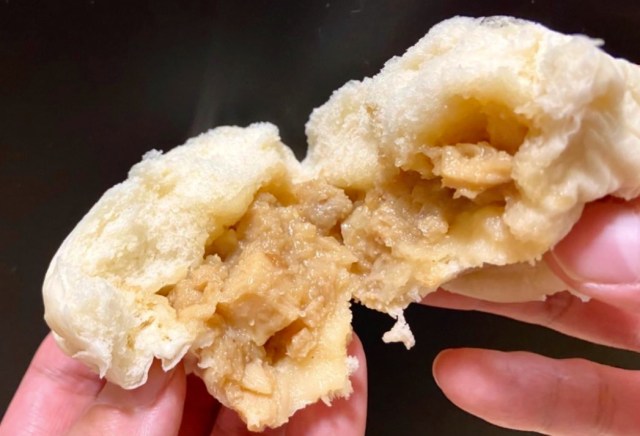
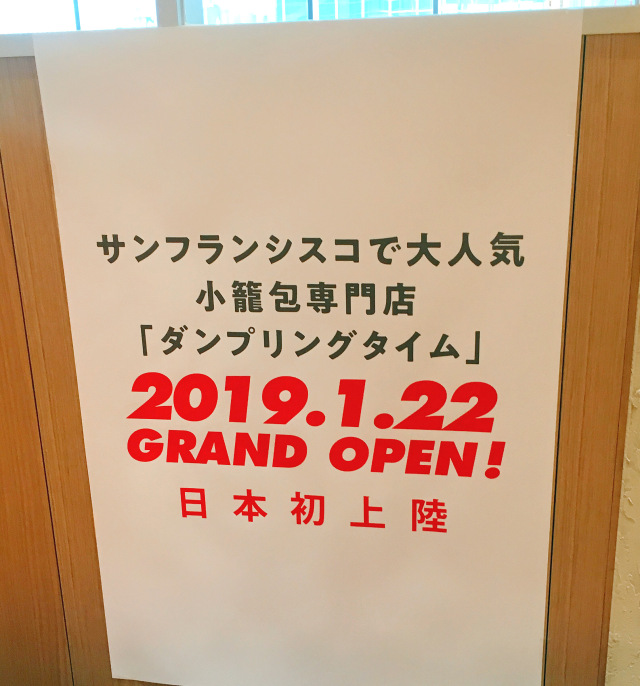
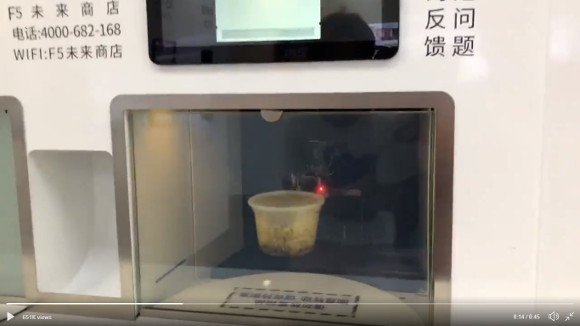
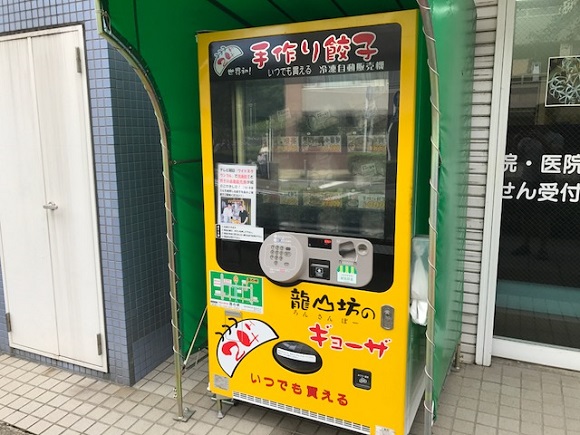
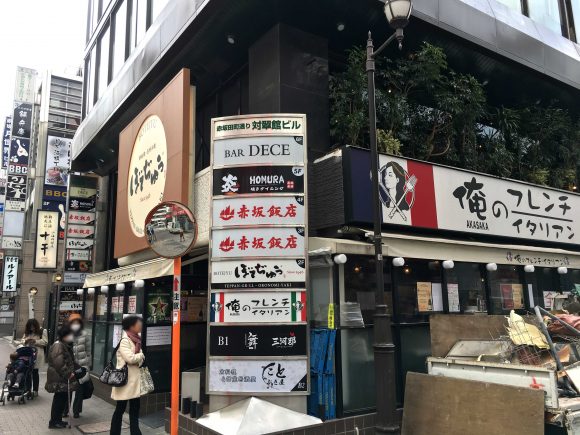
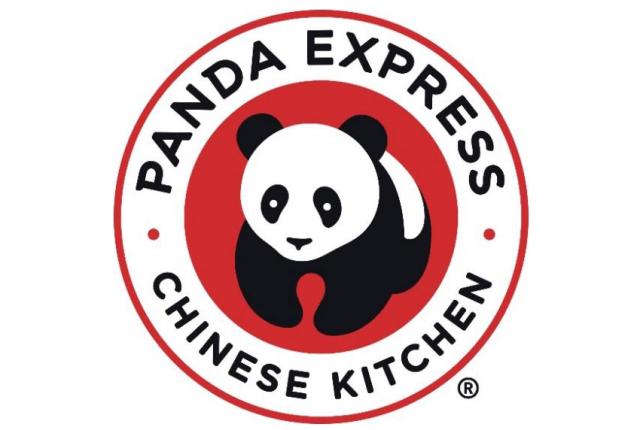
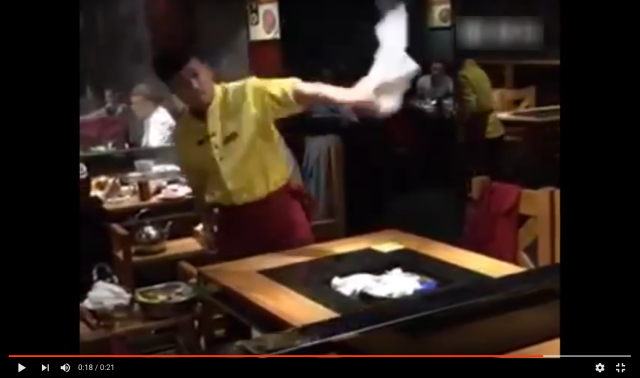
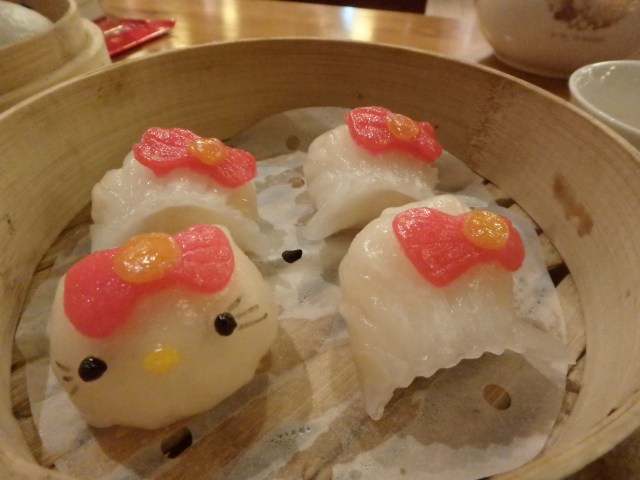
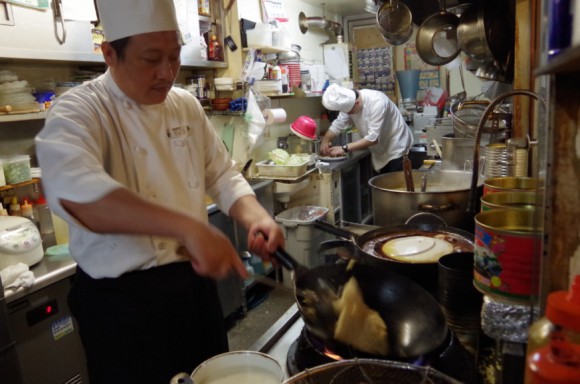
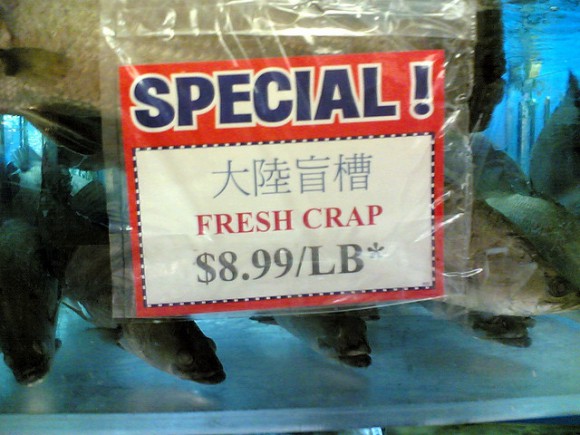
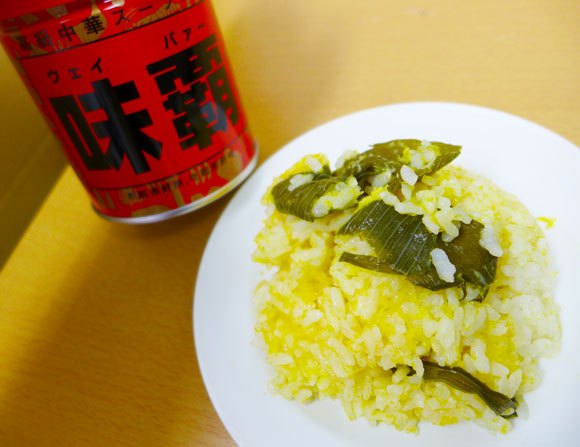
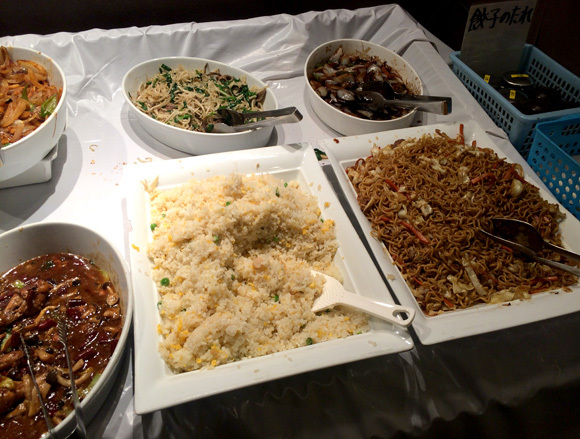
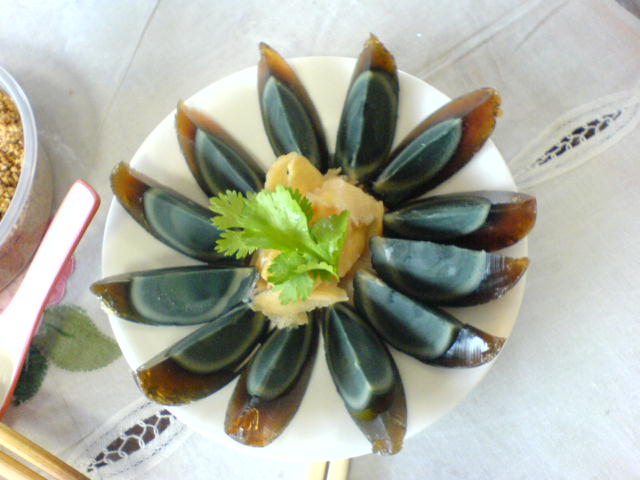
 Japan’s newest Shinkansen has no seats…or passengers [Video]
Japan’s newest Shinkansen has no seats…or passengers [Video] Foreigners accounting for over 80 percent of off-course skiers needing rescue in Japan’s Hokkaido
Foreigners accounting for over 80 percent of off-course skiers needing rescue in Japan’s Hokkaido Paying for prostitution isn’t illegal in Japan, but it could be soon
Paying for prostitution isn’t illegal in Japan, but it could be soon Man in Japan takes four parakeets hostage in attempt to force woman to meet with him
Man in Japan takes four parakeets hostage in attempt to force woman to meet with him New Family Mart cinema opens inside Japanese airport
New Family Mart cinema opens inside Japanese airport Faster! Japan’s Shinkansen to get speed boost along Tohoku route
Faster! Japan’s Shinkansen to get speed boost along Tohoku route Japanese fashion label’s samurai chino pants are on the move again with new colors
Japanese fashion label’s samurai chino pants are on the move again with new colors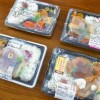 We taste makunouchi bento at four Japanese convenience store chains【Taste comparison】
We taste makunouchi bento at four Japanese convenience store chains【Taste comparison】 When is the right time for a love confession in Japan?
When is the right time for a love confession in Japan? Is China’s don’t-go-to-Japan warning affecting the lines at a popular Tokyo gyukatsu restaurant?
Is China’s don’t-go-to-Japan warning affecting the lines at a popular Tokyo gyukatsu restaurant? Three beautiful places to see Japan’s plum blossoms after starting your day in downtown Tokyo
Three beautiful places to see Japan’s plum blossoms after starting your day in downtown Tokyo Downloads of 39-year-old Guns N’ Roses song increase 12,166 percent thanks to Gundam
Downloads of 39-year-old Guns N’ Roses song increase 12,166 percent thanks to Gundam A look back on 40 years of Japanese schools banning stuff
A look back on 40 years of Japanese schools banning stuff Take a trip to Japan’s Dododo Land, the most irritating place on Earth
Take a trip to Japan’s Dododo Land, the most irritating place on Earth Huge Evangelion Unit-01 head appearing in lights in Japan to celebrate anime’s 30th anniversary
Huge Evangelion Unit-01 head appearing in lights in Japan to celebrate anime’s 30th anniversary Man arrested in Japan after leaving car in coin parking lot for six years, racking up three-million-yen bill
Man arrested in Japan after leaving car in coin parking lot for six years, racking up three-million-yen bill Starbucks Japan releases new drinkware and goods for Valentine’s Day
Starbucks Japan releases new drinkware and goods for Valentine’s Day Japan releases first official sakura cherry blossom forecast for 2026
Japan releases first official sakura cherry blossom forecast for 2026 Archfiend Hello Kitty appears as Sanrio launches new team-up with Yu-Gi-Oh【Pics】
Archfiend Hello Kitty appears as Sanrio launches new team-up with Yu-Gi-Oh【Pics】 China’s don’t-go-to-Japan warning looks to be affecting tourist crowds on Miyajima
China’s don’t-go-to-Japan warning looks to be affecting tourist crowds on Miyajima Studio Ghibli releases new “komorebi” plush toys from Princess Mononoke and Spirited Away
Studio Ghibli releases new “komorebi” plush toys from Princess Mononoke and Spirited Away Yokai are descending upon Tokyo this spring in the latest immersive art experience
Yokai are descending upon Tokyo this spring in the latest immersive art experience Japan’s Naruto theme park now offering real-world version of Minato’s kunai ninja weapon
Japan’s Naruto theme park now offering real-world version of Minato’s kunai ninja weapon New Studio Ghibli stamps leave an impression on your stationery…and your heart
New Studio Ghibli stamps leave an impression on your stationery…and your heart Survey asks foreign tourists what bothered them in Japan, more than half gave same answer
Survey asks foreign tourists what bothered them in Japan, more than half gave same answer Japan’s human washing machines will go on sale to general public, demos to be held in Tokyo
Japan’s human washing machines will go on sale to general public, demos to be held in Tokyo We deeply regret going into this tunnel on our walk in the mountains of Japan
We deeply regret going into this tunnel on our walk in the mountains of Japan Studio Ghibli releases Kodama forest spirits from Princess Mononoke to light up your home
Studio Ghibli releases Kodama forest spirits from Princess Mononoke to light up your home Major Japanese hotel chain says reservations via overseas booking sites may not be valid
Major Japanese hotel chain says reservations via overseas booking sites may not be valid Put sesame oil in your coffee? Japanese maker says it’s the best way to start your day【Taste test】
Put sesame oil in your coffee? Japanese maker says it’s the best way to start your day【Taste test】 No more using real katana for tourism activities, Japan’s National Police Agency says
No more using real katana for tourism activities, Japan’s National Police Agency says Starbucks Japan reveals new sakura drinkware collection, inspired by evening cherry blossoms
Starbucks Japan reveals new sakura drinkware collection, inspired by evening cherry blossoms Updated cherry blossom forecast shows extra-long sakura season for Japan this year
Updated cherry blossom forecast shows extra-long sakura season for Japan this year New Family Mart cinema opens inside Japanese airport
New Family Mart cinema opens inside Japanese airport Faster! Japan’s Shinkansen to get speed boost along Tohoku route
Faster! Japan’s Shinkansen to get speed boost along Tohoku route Japanese fashion label’s samurai chino pants are on the move again with new colors
Japanese fashion label’s samurai chino pants are on the move again with new colors We taste makunouchi bento at four Japanese convenience store chains【Taste comparison】
We taste makunouchi bento at four Japanese convenience store chains【Taste comparison】 When is the right time for a love confession in Japan?
When is the right time for a love confession in Japan? Trial of man accused of kicking rabbits to death on Japan’s rabbit island comes to an end
Trial of man accused of kicking rabbits to death on Japan’s rabbit island comes to an end Man arrested in Japan after leaving car in coin parking lot for six years, racking up three-million-yen bill
Man arrested in Japan after leaving car in coin parking lot for six years, racking up three-million-yen bill Starbucks unveils new Valentine’s Day Frappuccino in Japan
Starbucks unveils new Valentine’s Day Frappuccino in Japan Big Mac sauce now comes in a jar from McDonald’s Japan
Big Mac sauce now comes in a jar from McDonald’s Japan Reveal your inner fashion samurai with traditional clothes for the modern world
Reveal your inner fashion samurai with traditional clothes for the modern world Gift-giving made easy! The most popular omiyage bought in Japan, station by station
Gift-giving made easy! The most popular omiyage bought in Japan, station by station Japan’s premier love doll maker is closing, says goodbye to fans with heartfelt message
Japan’s premier love doll maker is closing, says goodbye to fans with heartfelt message Shimane has a secret hot spring town that feels like stepping into an old Japanese film
Shimane has a secret hot spring town that feels like stepping into an old Japanese film You can now visit a recreation of Evangelion’s Tokyo-3 and live there in miniature form in【Pics】
You can now visit a recreation of Evangelion’s Tokyo-3 and live there in miniature form in【Pics】